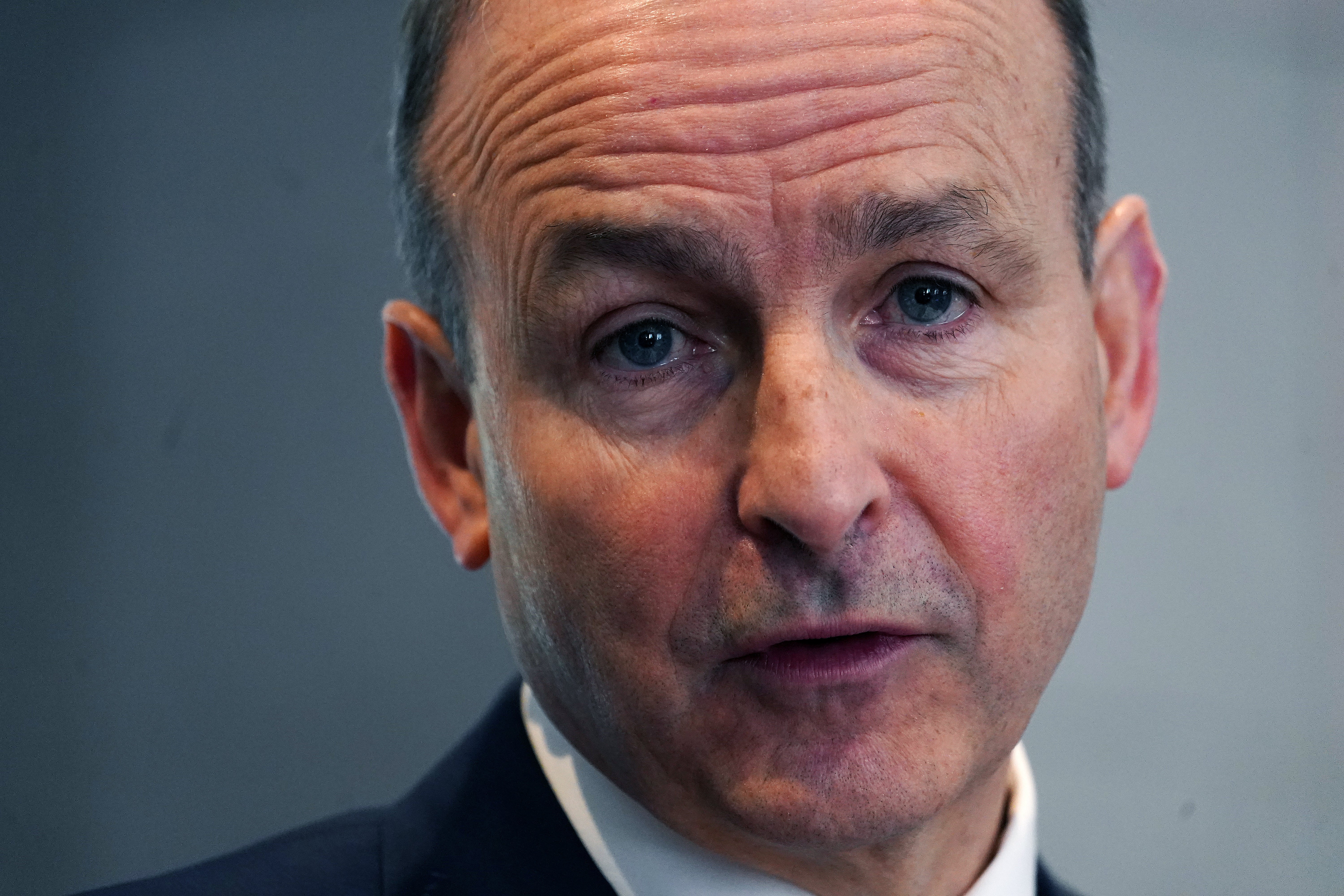Citizens’ assembly may be needed to discuss neutrality – Taoiseach
Micheal Martin said the actions of Vladimir Putin have left the EU exposed in terms of security.

A citizens’ assembly could be established to discuss Ireland’s policy of military neutrality, the Taoiseach has suggested.
Micheal Martin made the remarks in the Dail as he faced claims the Ukrainian invasion is bringing Ireland closer to Nato and “European militarisation”.
Mr Martin responded by saying the actions of Russian President Vladimir Putin have left the EU exposed in terms of security.
But he said now is not the time for a discussion on Ireland’s military neutrality, but instead to concentrate on measures to help the people of Ukraine.
During leaders’ questions, People Before Profit TD Richard Boyd Barrett said there has been a “clamour” in Government to move Ireland “away from its traditional position of military neutrality and closer to Nato and to the project of European militarisation”.
He said: “I find it absolutely extraordinary in the face of the dire consequences of war-mongering and militarism on the part of Putin that there is a thought that somehow more militarism, more arms expenditure and allying more closely with a military alliance is somehow a legitimate response.
“Is it not time to re-commit to Ireland’s position of military neutrality, which does not mean ignoring this crisis?”
The Taoiseach said “Russia stands condemned in the international court of opinion” for its attack on Ukraine.
This crisis does cause a need for further reflection on security architecture within Europe and within the wider world
He added: “Everybody tried everything to stop Russia going to war. Leading Nato countries did everything they could to say to President Putin, ‘You don’t need to go to war.’
“This crisis does cause a need for further reflection on security architecture within Europe and within the wider world.”
Mr Martin said Ireland has a tradition of military neutrality but has never been politically neutral.
He added: “But we do need a discussion on this.
“Not right now, in the middle of a terrible war when we should be concentrating our resources on helping the people of Ukraine in a practical way.
“I think we could look at a citizens’ assembly to discuss these issues in the fullness of time where detailed prepared submissions and perspectives from a wide range of opinion could be articulated.
“President Putin has fundamentally changed the multilateral rules-based order by the nature of his unprovoked attack on Ukraine. It would be foolish to ignore that.
“The European Union is exposed, security-wise, in respect of what has happened.”
Speaking earlier about the issue of Irish neutrality, Tanaiste Leo Varadkar said there should not be any “rash decisions” in the heat of the crisis.
He added: “It’s very clear that we’re not politically neutral.
“We’re fully supportive of Ukraine and it’s also very clear that the world is a dangerous place.
“We thought that, at least in Europe, that the era of one country overrunning another was over, that democratic governments couldn’t be overthrown by dictatorships.
“We see now in Ukraine that’s not the case. And we see that collective security works.
“Countries that are part of a collective security arrangement, at least in the current context, are more protected than those that are not.”
Mr Varadkar added: “So the kind of things we need to consider, obviously, is our capabilities, particularly investment in our own defence forces. And then where we fit into the international security architecture.
“As I said before, I don’t anticipate us applying to join Nato but I do think we should be prepared to be more deeply involved in European defence.
“And I know some people will say we shouldn’t have this discussion now or ever. I think it’s a discussion that we need to have as a country.”
Bookmark popover
Removed from bookmarks